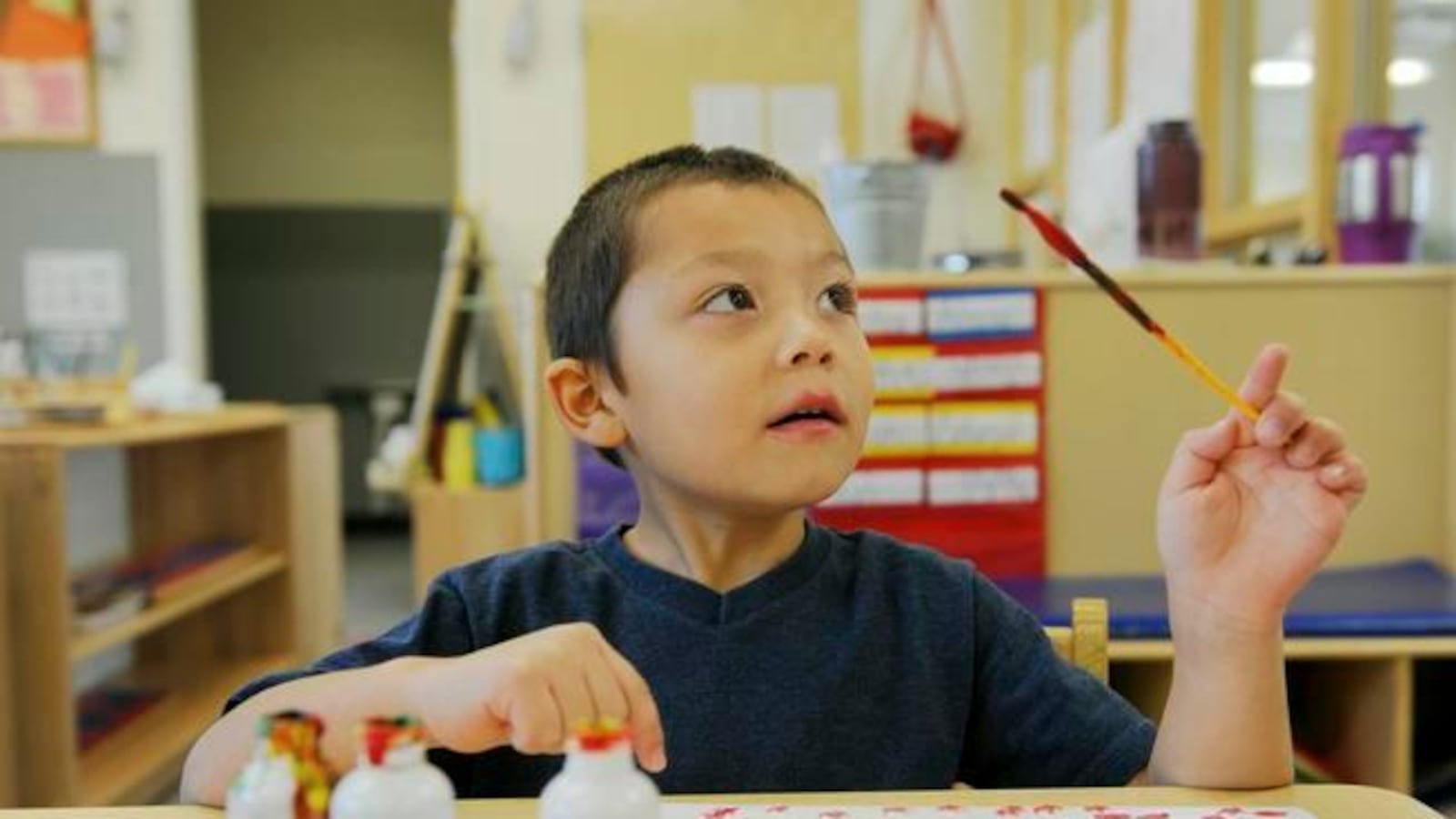Michigan’s 4-year-olds receive some of the highest quality education and care available in the country — that is, if your child can speak English.
Michigan was one of only three states to meet all 10 quality benchmarks designed by a national advocacy organization that released its annual State of Preschool Report this week. However, the state met only one out of 10 benchmarks for English language learners.
Four-year-olds enrolled in privately funded programs are not included in this data.
Enrollment and state spending per pupil stayed largely constant from the same report last year. About 30 percent of 4-year-olds are enrolled — some 38,371 children — while state spending was steady at $6,356 per pupil.
Compared to the rest of the country, Michigan ranks 16th out of 43 states and Washington, D.C., in enrollment for 4-year-olds and allocates about $1,000 more dollars on per pupil spending than the average state.
These findings come from the State of Preschool 2017 report published by the National Institute for Early Education Research, or NIEER, at Rutgers University.
Three states — Alabama, Michigan, and Rhode Island — met all 10 of the institute’s benchmarks for minimum state preschool quality standards. Benchmarks included things like student-to-teacher ratios, teacher training, and quality of curriculum.
But the only benchmark the state met for English learners is permitting bilingual instruction in the state-funded preschool program. Michigan did not meet benchmarks for assessing children in their home language, allocating more money for English learners, or making sure staff are trained in working with students learning English.
Authors of the new report say supporting English learners is important, especially early in life.
“For all children, the preschool years are a critical time for language development.” said Steve Barnett, senior co-director of the institute. “We know that dual-language learners are a group that makes the largest gains from attending high-quality preschool. At the same time, they’re at elevated risk for school failure.”
About a quarter of early education students nationwide are English learners. Michigan does not collect data on the number of early education students who are English learners, so it’s unclear how many students the low quality of instruction impacts.
Chalkbeat Colorado’s Ann Schimke contributed to this report.

